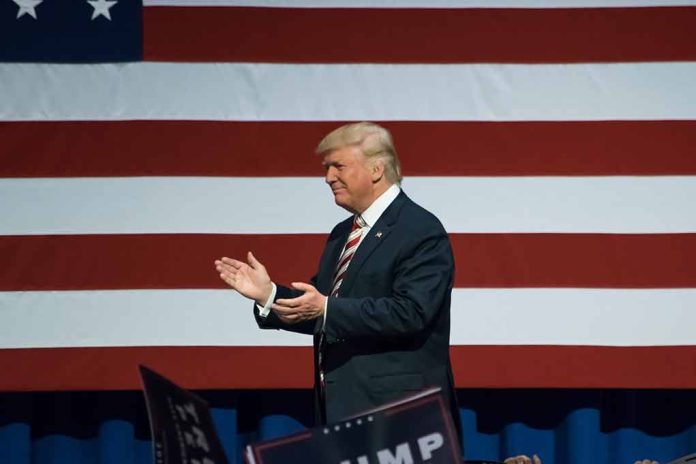
Congo’s President offers the United States access to critical minerals in exchange for military support against insurgent groups, potentially reducing Chinese and Russian influence in the mineral-rich nation.
Key Takeaways
- Congolese President Félix Tshisekedi has proposed granting the U.S. access to strategic minerals in exchange for military assistance against rebel groups.
- The offer includes access to cobalt, lithium, copper, and tantalum – critical resources for technology and defense industries.
- A U.N. report indicates that Rwanda has supported the M23 rebel group despite denials, with 4,000 Rwandan soldiers allegedly assisting rebels.
- The partnership could reduce Russian and Chinese dominance in the region, where both nations currently have significant mining interests.
- The conflict in eastern Congo has roots in the Rwandan genocide, with Hutu extremists fleeing into Congo after their defeat.
Congo’s Strategic Mineral Offer to the United States
Democratic Republic of Congo President Félix Tshisekedi has extended a potentially game-changing proposition to the United States. In a direct appeal to President Donald Trump, Tshisekedi offered access to Congo’s vast reserves of critical minerals in exchange for American military support against insurgent groups destabilizing the nation. The proposal specifically mentions opening “mining opportunities for the U.S. Sovereign Wealth Fund” to secure essential minerals including cobalt, lithium, copper, and tantalum, which are vital components in advanced technology manufacturing and defense systems.
This strategic partnership would address two pressing concerns for both nations. For Congo, it means gaining a powerful ally in combating rebel forces linked to terrorist organizations like ISIS. For the United States, it provides direct access to resources critical for economic and military superiority at a time when supply chains for these minerals face increasing global competition and uncertainty. Tshisekedi has specifically requested a “formal security pact” that would enhance Congo’s military capabilities against insurgent threats.
The President of Congo just offered ownership of some of his country's $24 TRILLION minerals in a plea for President Trump to bring peace to the region.
"We think the United States of America, given its role and influence around the world, is an important partner to have and we… pic.twitter.com/1jSTI9eOkI
— Johnny Midnight ⚡️ (@its_The_Dr) March 20, 2025
The Complex Regional Conflict
The ongoing conflict in eastern Congo has deep historical roots dating back to the 1994 Rwandan genocide. Following their defeat by Tutsi forces led by current Rwandan President Paul Kagame, many Hutu extremists fled into neighboring Congo, setting the stage for decades of regional instability. Today, various armed groups operate in mineral-rich eastern Congo, including the M23 rebel group that has gained significant territory in recent years. While Rwanda has consistently denied supporting M23, a United Nations report indicates otherwise.
According to the U.N. findings, President Kagame allegedly deployed approximately 4,000 Rwandan soldiers to assist M23 operations inside Congo. The report further suggests that both Rwanda and Uganda have been exploiting Congo’s mineral resources, extracting valuable materials that power global industries ranging from electric vehicles to aerospace and communications technology. These minerals represent trillions of dollars in potential value, explaining the intense interest from multiple international powers.
Geopolitical Implications
Tshisekedi’s outreach to the United States carries significant geopolitical ramifications. Currently, both Russia and China maintain substantial influence in Congo through extensive mining operations and political relationships. A strengthened U.S.-Congo partnership would potentially counterbalance this influence at a time when both Russia and China are actively expanding their presence throughout Africa. For American interests, securing reliable access to these strategic minerals would reduce dependency on potentially hostile supply chains.
The minerals at stake are fundamental to modern technological and military applications. Cobalt is essential for batteries in electric vehicles and energy storage systems. Tantalum is used in capacitors for electronics. Lithium powers rechargeable batteries across countless devices. Copper remains indispensable for electrical systems. Together, these resources represent core components of modern industrial and military capability, making Congo’s reserves a prize of immense strategic value in an increasingly resource-competitive global landscape.
Sources:
War-Torn Congo Has a Deal for Trump: Kick Out Rebels, Get Minerals — Commodities Roundup
Congo president meets US lawmaker amid talk of mineral deal
Congo’s President Offers U.S. Lucrative Deal For Mineral Rights







